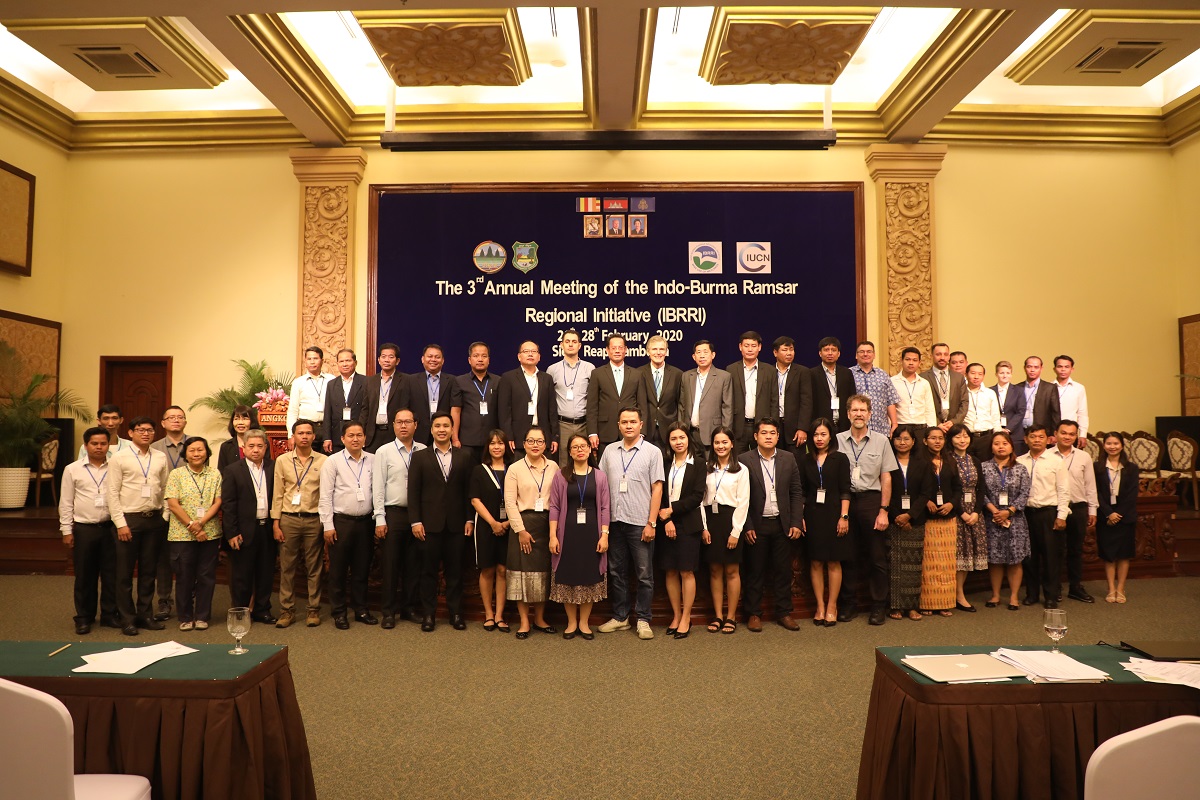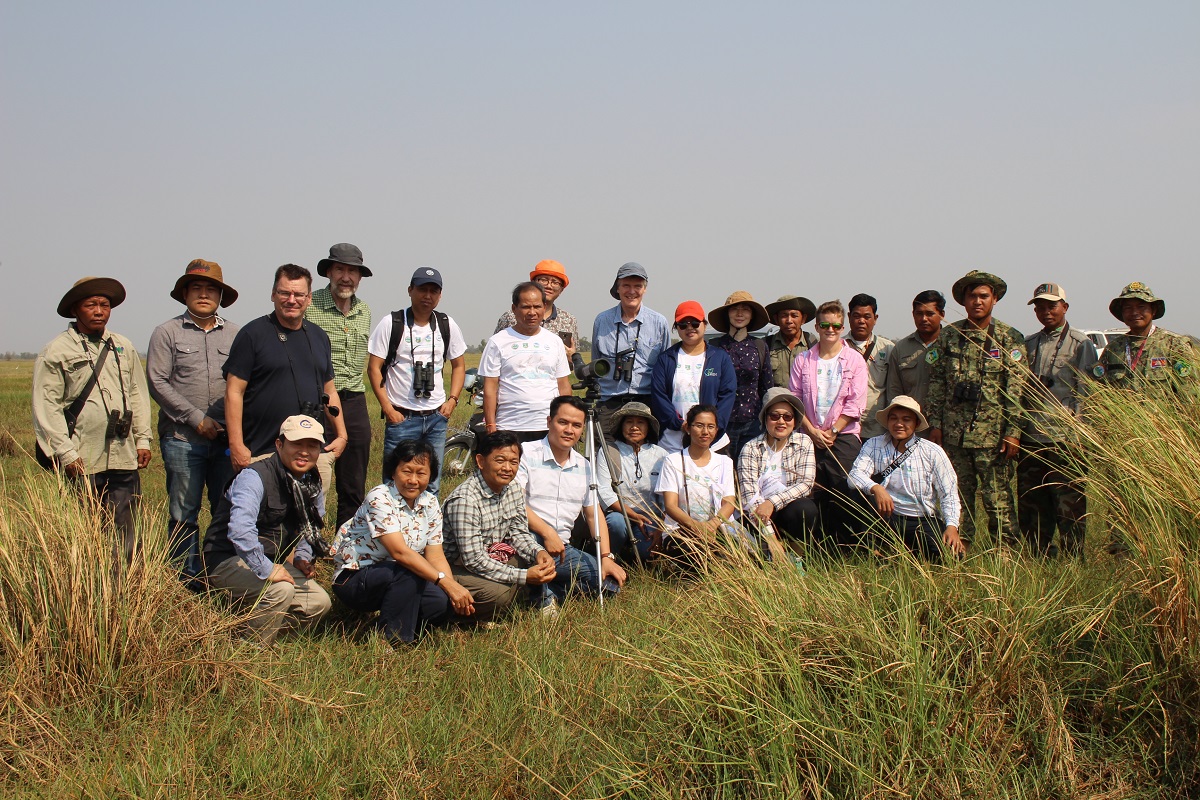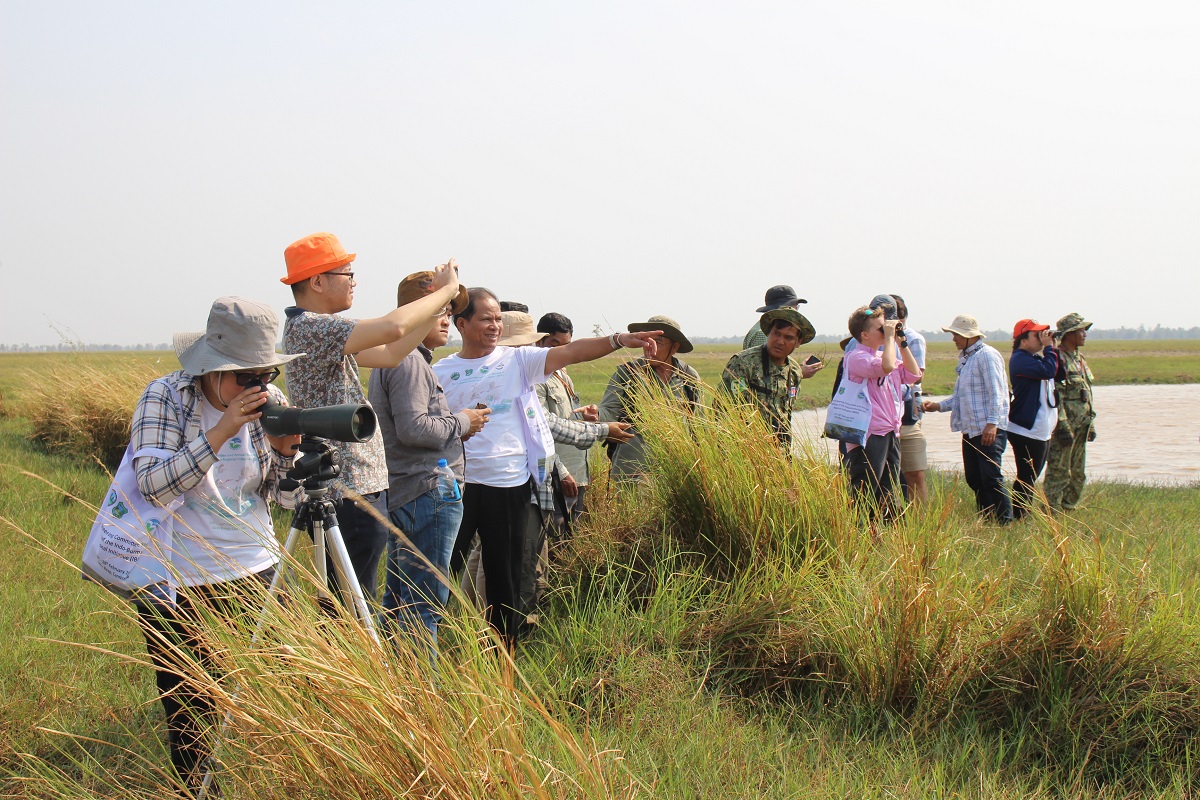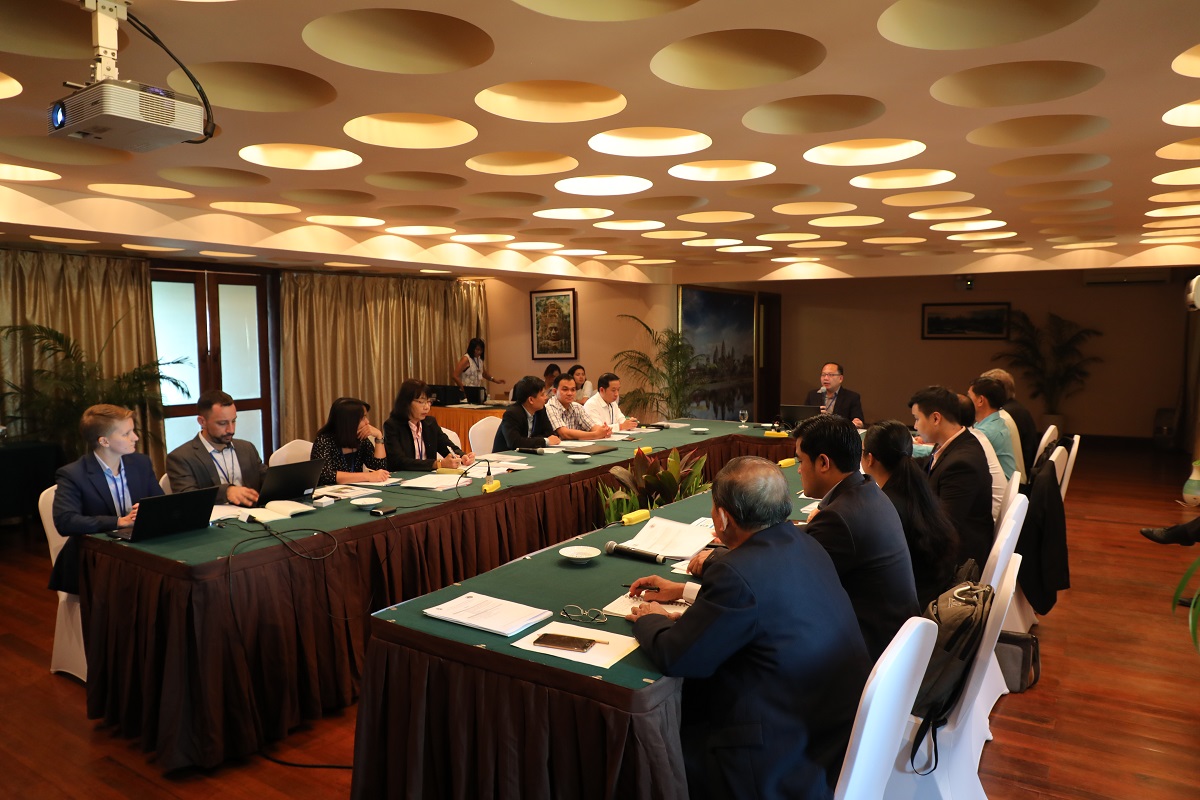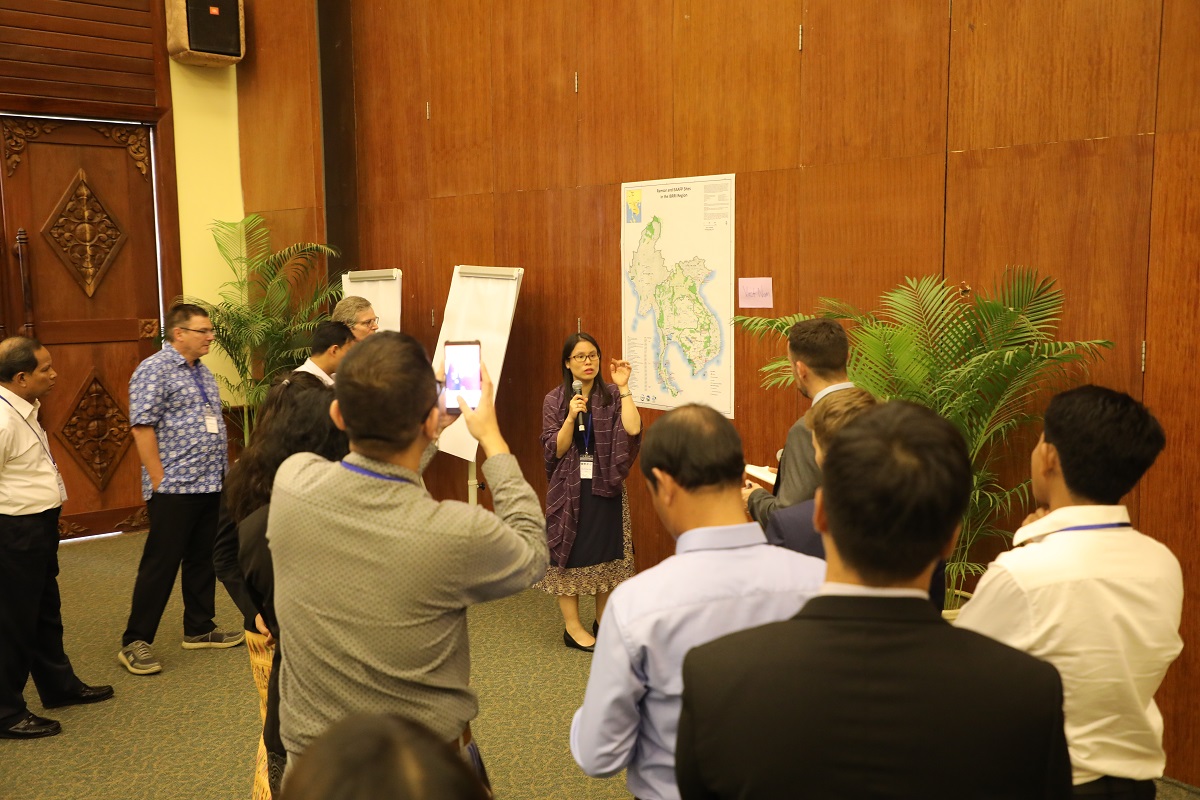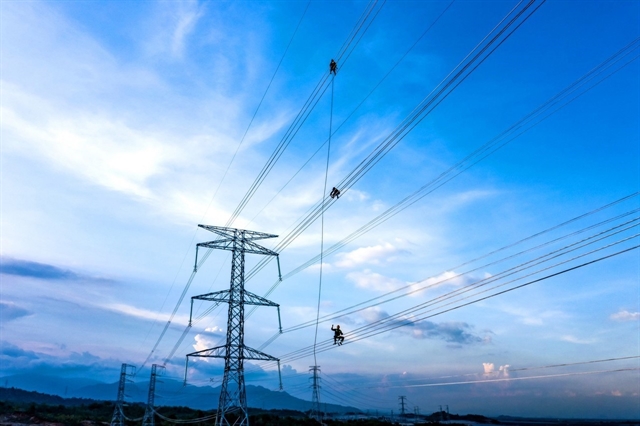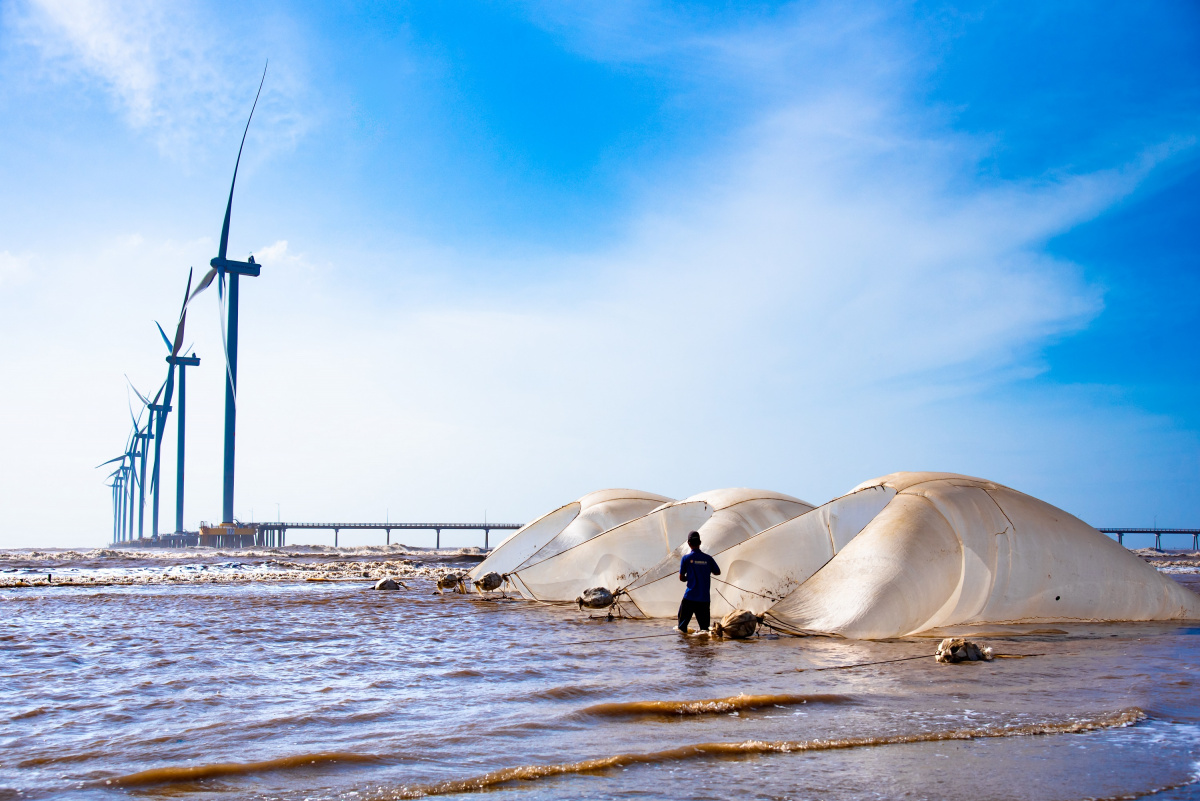Fostering regional cooperation to strengthen wetlands conservation in the Indo-Burma Region
From 26 to 28 February, the Indo Burma Ramsar Regional Initiative (IBRRI) held its Third Annual Meeting in Siem Reap, Cambodia, with participants from governments, NGOs, and Ramsar International Organization Partners (IOPs). Participants shared successes and challenges in wetland conservation in the region, discussing site management, threats from invasive species, communication approaches for wetlands conservation and plans for Ramsar site nominations.
“Wetlands are at the core of sustainable development around the world, especially in the Indo-Burma region, where the link between wetlands and societies is inseparable. Recent events like the floods and droughts in Cambodia, Lao PDR and Viet Nam reminded us of the importance of preserving the integrity of the river systems and connected wetlands,” said H.E. Srun Darith, Secretary of State, Ministry of Environment, Cambodia during the opening ceremony.
During the meeting, country groups mapped their plans for nominating wetlands sites under both the Ramsar Convention and the East Asian Australasian Flyway Partnership (EAAFP). In the IBRRI region, governments plan to nominate at least 18 new Ramsar sites and seven new EAAFP sites in the coming years, increasing the current number of sites by more than 50%.
Members and organisations working in the region presented their wetlands-related accomplishments. Presentations from Myanmar Nature and Wildlife Conservation Division, Mekong Wetlands University Network, Wildfowl & Wetlands Trust, and the Food and Agriculture Organization (FAO) emphasized the effectiveness of bilateral agreements for wetlands conservation, capacity building of site managers, and the impacts of agriculture on wetlands. With support from FAO, IBRRI will host a regional consultation on sustainable wetland agriculture later this year.
The countries and organisations reviewed the status of management plans for national Ramsar Sites and the main challenges including areas where IBRRI could provide additional support such as on securing sustainable long-term financing and the lack of cross-sectoral cooperation. Successes at site level included establishment of ecotourism, community fisheries, and mangrove forest restoration initiatives.
Participants then analysed priority wetland-dependent species at their sites, where they consider species monitoring programmes, short-distance migrants, and potential national Red Lists of threatened species. Green sea turtles were listed by both Thailand and Viet Nam, underscoring the importance of coastal wetlands in the region. The Sarus Crane was also listed as an important wetland species in three countries, demonstrating the importance of the region for the species conservation.
An analysis of invasive wetland species underscored the threats of Mimosa pigra, water hyacinth, and golden apple snails to the health of wetlands throughout the region, necessitating collaboration to prevent further negative impacts. It was decided that a workshop covering invasive species in the IBRRI region could help address the issue.
The meeting wrapped up with a session on Communication, Education, and Public Awareness (CEPA), in which the IBRRI Secretariat presented IBRRI’s CEPA strategy, and each country discussed its most effective CEPA activities in 2019 and its plan for 2020.
To end the meeting, the Ministry of Environment, Cambodia hosted a field trip to Ang Trapeang Thmor Protected Landscape, a wetland ecosystem that provides habitat for over 200 species of birds. Participants had the chance to see flocks of up to 30 Vulnerable Sarus Cranes, the tallest crane species in the world.
Learn more about IBRRI's activities and accomplishments, download the IBRRI Annual Report 2019.
About IBRRI
The Indo-Burma Ramsar Regional Initiative (IBRRI) was launched in June 2016, under the leadership of the governments of Cambodia, Lao PDR, Myanmar, Thailand and Viet Nam, who are contracting parties of Ramsar. IUCN Asia acts as the secretariat for the initiative. Ramsar Regional Initiatives (RRIs) under the Ramsar Convention are intended as operational means to provide effective support for an improved implementation of the objectives of the Convention and its Strategic Plan in specific geographical regions, through international cooperation on wetland-related issues of common concern. Regional Initiatives provide an enabling environment for the involvement of all stakeholders at all levels, including the ministries responsible for the environment and water issues, intergovernmental bodies, Ramsar International Organisation Partners (IOPs), other NGOs, academia, local communities, and economic actors. They provide a platform for governments, technical experts, international NGOs, local communities and private companies to collaborate on the governance and administration of the Ramsar Convention.
